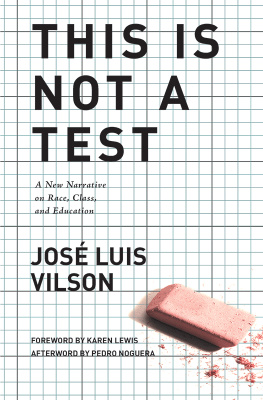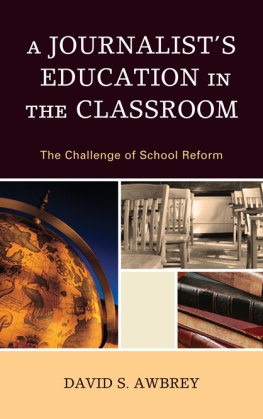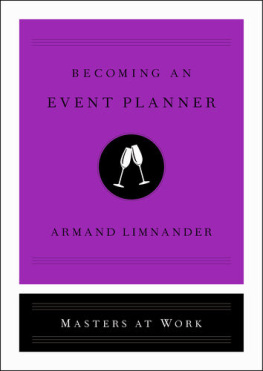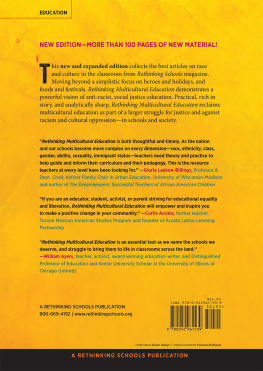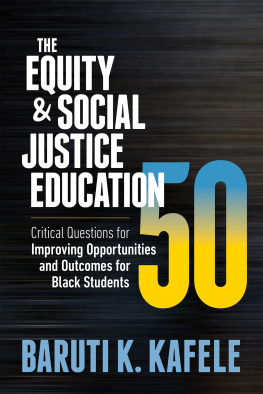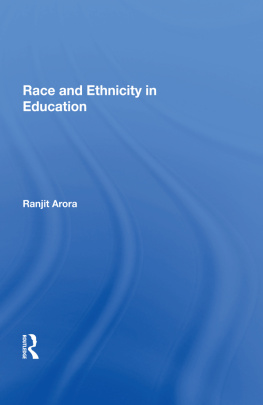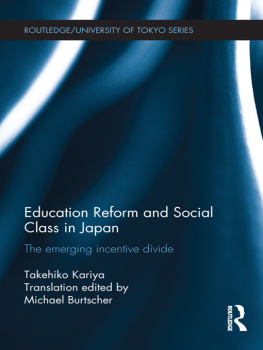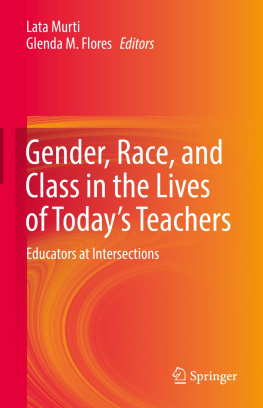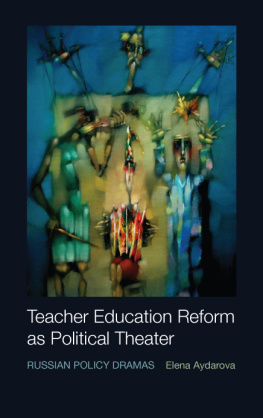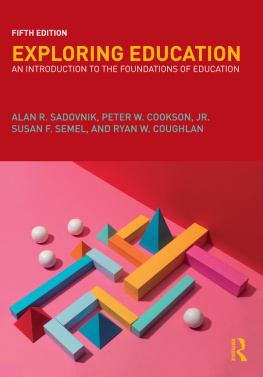Praise for This Is Not a Test
Jos Luis Vilson has written a spellbinding book that explains the joys and burdens of teaching. The joys are the kids, with all their heartaches and dreams. The burdens are the politicians and careerists who snuff out the spirits of children and teachers. Read this book!
Diane Ravitch, author, Reign of Error: The Hoax of the Privatization Movement and the Danger to America's Public Schools
Jos Vilson writes from a place of authority about the intersection of race, class and Americas education system. His straight talk about the absurdity of Americas test obsession, its failure to meet or even acknowledge the needs of an increasingly diverse student population, and a reform movement that has reformed nothing, failed at much, and distracted from students very real needs is a telling portal on whats really going on in American education today. Those who can relate to Vilsons experiences as a student or a teacher will welcome his unvarnished honesty and reflections. And those for whom this is terra incognita will find an insightful and illuminating window on the educational experiences of Americas emerging majoritystudents of many hues and languages, whose families struggle every day, for whom education may be the only way up, yet who too often are failed by systems ill-equipped to foster their success. Vilsons visceral accounts remind us of the humanity of teacherstheir struggles and triumphs, their frustration with forces outside their classroom walls and, above all, their devotion to their students. By telling his own story and those of his students, Vilson shows why teacher voice is essential to shedding the failures of the past and to reclaiming the promise of public education.
Randi Weingarten, president, American Federation of Teachers
Drawing from his own insight as a teacher, Jos Vilson hits right between the eyes, exposing how hardscrabble poverty and the pernicious effect of racism distort young lives. In This Is Not a Test: A New Narrative on Race, Class, and Education , Vilson argues for more teachers of color, more time for teachers to support each other, and more ways for teachers to shape policy. Bristling at the cold calculus of tests, This Is Not a Test calls for practices that engage imagination and respect students as people. In gripping language, Vilson sends students an urgent message: When we find our passions, we must enter into them boldly and believe in the value and gift of ourselves.
Dennis Van Roekel, president, National Education Association
In its telling, Jos Vilsons evocative collection of essays is ferociously honest and, as expected from someone whose creative impulses are informed by hip-hop, unapologetic and lyrical. A thoroughly engaging narrative about the intersection of race and culture, identity, economic disparity, and education, This Is Not a Test is a must-read for parents and educators who want to understand, truly and deeply, the challenges inner-city students face. It was, after all, written by one of those children, a young man from a marginalized commu nity, who grew up and bum-rushed the system he dedicated his life to changing from within.
Raquel Cepeda, author, Bird of Paradise: How I Became Latina
Joss autobiographical journey offers a big window for seeing why our nation must blur the lines of distinction between those who teach in schools and those who lead them. With powerful prose and poetry, his narrative as student and then, later, an NYC teacher leader, loving father (and husband), and advocate for children paints a portrait of what public education can and must be for American society. Joss last chapter, Why Teach, offers a hopeful vision for the future of the profession, in spite of wrongheaded policymakers who seek to control teachers rather than listen to and learn from them. Jos represents so many teachers across the United States whose pedagogical skills and leadership acumen have yet to be tapped in the transformation of teaching and learning. Read This Is Not a Test now!
Dr. Barnett Berry, CEO and founder, Center for Teaching Quality
Too many books about teaching read like dull academic treatises, condescending how-tos, or simplistic Hollywood scripts. Jos Vilsons This Is Not a Test avoids these traps with a narrative that is by turns passionate and funny, angry and vulnerable, and full of keen insight born of on-the-ground experience in schools. Whether referencing Jay-Z or John Dewey, discussing corporate school reform or the intimacy of one-on-one interactions with students, Vilson is a bold and fearless writer, weaving his own story and struggles into broader conversations about race, equity, and the future of public schooling. His singular, urgent voice is one we all need to hear.
Gregory Michie, author, We Dont Need Another Hero: Struggle, Hope, and Possibility in the Age of High-Stakes Schooling
Jos Vilson is a teacher of the highest order. Through the powerful narrative of his life both inside and outside of the classroom, Jos teaches us important lessons on every page of This Is Not a Test . Jos teaches us about the intersection of education, race, class and activism while calling all of us to do betterto be betteras we strive along with him to be the educators all our children need us to be. This book is a must-read for educators, soon-to-be educators, parents, students, and anyone who cares about education and the children of this country.
Chris Lehmann, founding principal, Science Leadership Academy
Contents
To the beloved red light and the little defender and warrior.
On Perspective:
An Introduction
Those children
should find soft lives
that drop pendulums in their dreams
and never tell another story
about the ghetto
until theyve had to count rats
with their hands.
Tara Betts, For Those Who Need a True Story
On the surface, you might assume Tara Betts is telling a story about a kid who, at his mothers behest, kills as many rats as possible so the landlord will lower their rent. Such a tale hits at my very core. I live a little better now, but when my family lived on Clinton Street on the Lower East Side of Manhattanback when no one wanted to live thererats came as naturally as breathing and phases of the moon. While the synagogue still called people to worship on Norfolk Street and Katzs Delicatessen became a cultural relic of an older Lower East Side, the 1990s version of the LES had every bit of the street cred that Bedford-Stuyvesant and Harlem did on rap records, without the actual rappers. Roaches scraped crumbs off the floor like poor folks did; killing them symbolized an urban food chain.
When I was maybe four or five, I walked into the bathroom and saw a rat in my tub. I had no experience with killing rats whatsoever, although Id smelled the faint scent of rat blood, pungent and acidulous, and heard rats pitter-patter behind my walls and under my bed. I tried to wash this gray pup into the drain so itd scurry like the roaches do, but it stood its ground. This soaked little creature stood there, no bigger than an inch, petrified and shivering, eyes glistening and claws closed to its sides.
I stared at it, then spoke to it for a few minutes. I thought I could befriend it, but the wiser part of me retracted my finger before I could risk catching anything that would make me shiver, too. So we just stayed there, me leaning against the porcelain-coated tub, the rat standing within an inch of an indeterminate sinkhole of escape or death, both of us pondering whether wed break out of our natural inclination to defend or offend each others species.
Eventually I called my mom. She ushered me out of the bathroom, told me everything would be okay, and walked back into the bathroom with a sigh.
A few minutes later, she came back out and said the rat was gone. Im not sure what actually happened to it, but I know I never saw it again. To this day, Im still too nervous to ask her.
Next page
